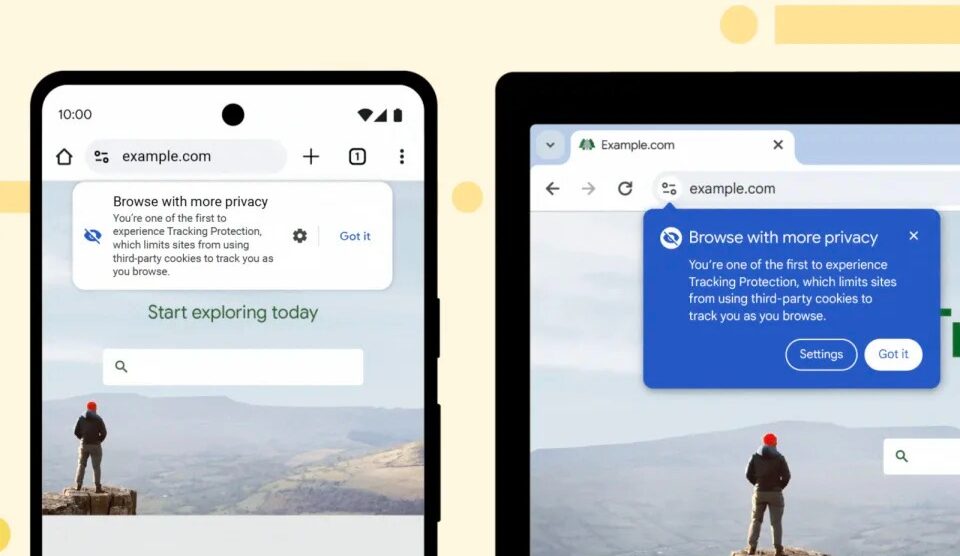For years, online trackers have followed internet users around the web like crumbs trailing from a freshly baked cookie. But Google is now taking a big bite out of that pervasive practice, starting to phase out third-party cookies for Chrome users worldwide. Brace yourselves, because the landscape of digital marketing, advertising and personal data is about to get a whole lot crumblier.
Farewell, Third-Party Cookies
As of January 4th, 2024, one percent of Chrome desktop users have had their third-party cookie jars unceremoniously emptied. This move represents the initial global roll-out of Google’s Privacy Sandbox initiative for the browser.
The Privacy Sandbox refers to a suite of tools designed to continue enabling effective web advertising while enhancing user privacy and preventing covert tracking of individuals across sites.
The Role and Risks of Third-Party Cookies
Third-party cookies, those bits of code dropped by external websites you don’t directly visit, have long been the backbone enabling targeted digital advertising. They surreptitiously track your movements across much of the internet, building detailed profiles of browsing behavior used to serve personalized ads.
While highly convenient and profitable for advertisers, this constant surveillance occurring in the background has raised growing concerns about user privacy violations and data security risks.
Building a More Ethical System
Google’s Privacy Sandbox aims to reshape the digital ecosystem into a more balanced, accountable and ethical system. Under this new approach, web activity data would be largely processed on users’ devices themselves, rather than being broadcast to legions of third parties.
This localized, limited scope processing allows relevant advertising while keeping individually identifiable tracking at a minimum across the broader web.
Introducing New Privacy-First Ad Tools
So with third-party cookies being gradually phased out, what specifically replaces those old advertising crumbs? Google is baking several alternative ad targeting technologies right into Chrome itself:
- FLoC (Federated Learning of Cohorts) – Groups users with similar browsing histories into interest “cohorts” without revealing personal identities
- Topics API – Allows ads relevant to webpage context rather than individual tracking
- Privacy Budget API – Gives users control over how much of their data is used for ads
Concerns Around Effectiveness and Centralized Control
While promising more user agency and transparency, the Privacy Sandbox is still in its early stages. Concerns remain about its real-world effectiveness for advertisers at scale. And handing over such ad infrastructure control to a single gatekeeping entity like Google raises anti-competitiveness issues.
Critics argue it may be wiser to develop more federated, decentralized solutions rather than relying on Google as the privacy steward for all Chrome users.
The Future of Web Privacy and Advertising
For now, Google plans to gradually expand the Privacy Sandbox rollout to all Chrome desktop users over the course of 2024. This will serve as a global baking test to refine the technologies and assess their impacts at scale.
The eventual outcomes of this experiment will heavily influence the future evolution of web privacy, advertising and behavioral targeting for years to come.
Will Chrome users embrace the privacy-enhancing changes? How much advertising revenue decline will publishers face? What new data-driven innovations might emerge from this churn? Many open questions remain.
One certainty is the third-party cookie empire that has ruled online advertising for decades is finally starting to crumble. Where things go from here depends on the interplay of market forces, government policies, consumer advocacy groups and internet titans like Google.
What are your thoughts on this cookie crumbling saga? Should advertisers and tech companies have unfettered tracking access? Or is it time for a new chapter putting user privacy first?










Add Comment